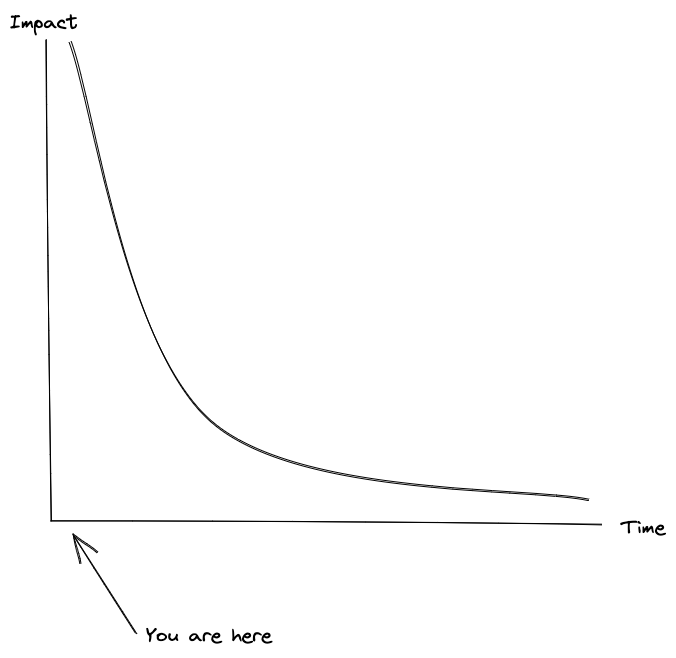On starting something new

Starting a new project from scratch can be very daunting. Because it’s early on, you don’t have any previous bad debt that slows down your decision-making. You can move quickly and make a lot of progress.
Of course, each decision you make also has an outsized impact on decisions that come after it. And the decisions you make later have a much smaller impact.

So when you’re starting from scratch, it’s worth thinking about these early decisions. You’re going to be living with them for a while.
Fundamentally, the most important decision is what you are going to make. Not how, not when, not by whom. What are you making?
(There’s a good argument for starting with why, but we’ll come back to that in another post).
It’s most important to make something people want. History is littered with very cool tech demos that didn’t solve a problem (cough cough, Google Glass) and ended up in the bucket of retired products.
More often than not, you will make something people don’t want.
Now, that might happen for a few reasons. For example, you might start building something people want, but you move further from that goal over time. Or you might just make something you think is cool but turns out not to be helpful.
There are an infinite number of ways to get into that state.
It’s much harder to avoid it.
So how do you make something people want?
A great place to start is building something you yourself need.
Like, really need.
Not just “This person charges $10/mo for that service, but I kinda wish it were free” need. You need to have searched and exhausted the alternatives and realize that what you want doesn’t exist.
Because if you’re not willing to pay a few bucks for something… you don’t need it that badly.
What you want needs to make your job easier.
Or make you money...
Or run your company more smoothly...
Or fix a gaping hole in your product...
Or let you excel at your hobby...
These are real needs. The ones that will get you excited to solve the problem. And if you’re excited, that’s good for two reasons.
The first is that it’s hard to make a product. And once the excitement of hacking on something wears off, it gets boring quickly. You need the energy and passion to really solve something to get through that tedious work of creating something new.
And the second is that if you’re passionate and excited about it, that will rub off on others. And they’ll like hearing about what you’re doing and why it’s helpful. And those people will become your first customers.
So give your first few decisions some thought. Building a product isn’t for the faint of heart and will take much more time than you think. So be prepared to dedicate yourself to that problem.